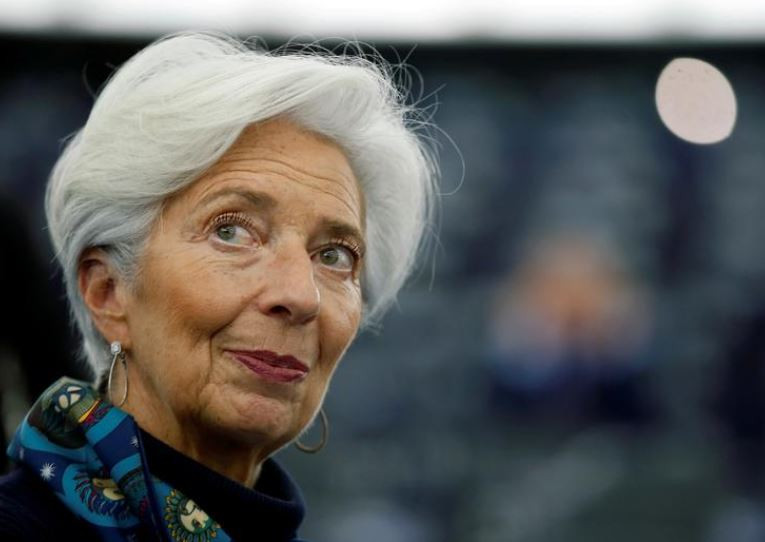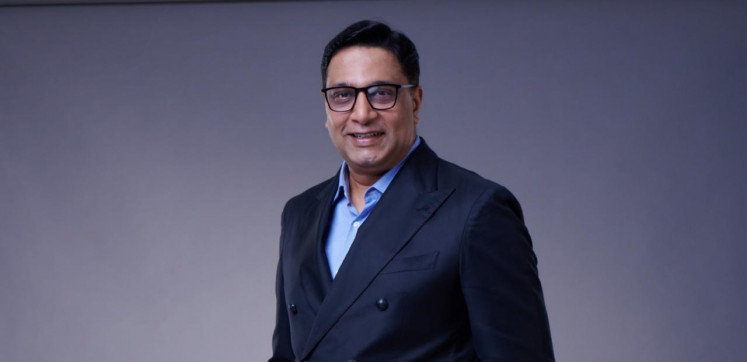ECB sets course for summer rate hikes
With euro zone inflation at a record high and broadening, the central bank is accelerate a policy turnaround from all but ruling out a rate hike this year to now penciling in several.
Change Size
 European Central Bank President Christine Lagarde looks on during a debate on the 2018 annual report of the ECB, at the European Parliament in Strasbourg, France, on Feb. 11, 2020. (Reuters/Vincent Kessler/File Photo)
European Central Bank President Christine Lagarde looks on during a debate on the 2018 annual report of the ECB, at the European Parliament in Strasbourg, France, on Feb. 11, 2020. (Reuters/Vincent Kessler/File Photo)
T
he European Central Bank is likely to raise its key interest rate out of negative territory by the end of September and could lift it further, ECB President Christine Lagarde said on Monday after policymakers had for weeks made the case for lift-off.
With euro zone inflation at a record high and broadening, Lagarde's comments accelerate a policy turnaround that has seen her go from all but ruling out a rate hike this year to now penciling in several.
"Based on the current outlook, we are likely to be in a position to exit negative interest rates by the end of the third quarter," Lagarde said in a blog post published on the ECB's website.
French central bank Governor Francois Villeroy de Galhau, a close ally of Lagarde and considered a centrist on the ECB's rate-setting Governing Council, appeared to back the call, cementing market expectations.
"If you look at President Lagarde's statement this morning, the deal is probably done because there is a growing consensus," Villeroy told a panel at the World Economic Forum in Davos.
"The main problem, at least in the short run is inflation, without any doubt."
The ECB's deposit rate, currently its main rate instrument, is now set at -0.5 percent, meaning banks are charged to park cash at the central bank, and has been below zero since 2014 as the central bank fought too-low inflation.
But prices have been soaring in recent months as costs for fuel jumped due to factors including Russia's invasion of Ukraine and spilled over onto other goods.
Headline inflation in the euro zone hit an all-time high of 7.4 percent in April, with even measures that strip out volatile food and energy prices far exceeding the ECB's 2 percent target.
Markets now see 110 basis points of rate hikes this year, or moves of more than a quarter of a percentage point at each of the ECB's policy meetings from July.
Some fear a rate hike will slow growth further and could push the 19-country euro zone into recession, an argument Villeroy rejected, calling the bloc resilient.
"I would play down the idea of a short-term trade-off between inflation and growth. In the short run, our priority is clearly ... fighting inflation."
Bundesbank chief Joachim Nagel, a long-time advocate of higher rates, meanwhile argued that relatively quick wage growth, a precondition of durable inflation, is probably coming, another argument for tighter monetary policy.
"I believe that in the second half ... we will see high numbers coming from the wage negotiations," the German central bank chief said.
Lagarde opened the door to further rate hikes towards what economists call the neutral level - an unobservable rate which brings economic output into line with its potential - or even above it.
"If we see inflation stabilizing at 2 percent over the medium term, a progressive further normalization of interest rates towards the neutral rate will be appropriate," Lagarde added.
"If the euro area economy were overheating as a result of a positive demand shock, it would make sense for policy rates to be raised sequentially above the neutral rate," she said.
But she cautioned that the pace and size of those rate increases could not be determined at the outset as the economy faced supply shocks such as China's COVID-19 restrictions and disruptions related to the war in Ukraine.










